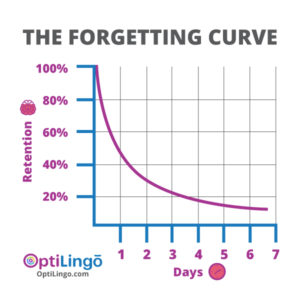Which Language Should I Learn?
Learning a new language broadens horizons, increases career opportunities, and enhances social networking. It’s also good for the brain – learning a new language strengthens memory and improves focus. The first step is to identify which language you want to learn. And if you’re like many people, narrowing down the choices can be challenging.
There are an estimated 5,000+ languages currently spoken on the planet. Unfortunately, only about half of these will survive over the next 50 to 100 years. Even with 2,500+ languages to choose from, the options can be daunting. Some suggest choosing one of the most popular or widely-spoken languages. Others might advocate a language based on personal, familial, or related reasons. Still, others might advise you to choose a language based on how easy or difficult it is to learn.
The truth is that each of these approaches makes sense, but there is no “one-size fits all” approach that works for everyone. So with that in mind, here are 8 questions to consider when selecting a new language to learn. Reading through these carefully will help guide you in the direction that best suits your personal needs and preferences.
1. Are You Interested in a Specific Language?

If a particular language seems to light your fire, take it as a strong indication that this language is the one you should choose. Personal interest in any subject is a primary motivator. And if it’s absent, learning may feel more like a chore than anything else.
Learning a language involves significant hours of exposure and study. And it’ll be harder to make time if the language bores you or otherwise fails to hold your attention. By the same token, if the language calls to you and somehow intrigues you, you’ll have little difficulty making room for it in your schedule.
You may even have started your journey without realizing it yet. For instance, perhaps you frequently look up foreign words you come across. If this sounds like you, listen to your gut. Your subconscious is probably trying to tell you something. However, don’t worry if you feel that way about multiple languages. There are other ways to narrow your choices down.
2. How Easy Is Your Target Language to Learn?
You’ll have better odds of sticking with a new language if it’s relatively easy to learn. Especially if you’re a busy student or a working adult with limited time to carve out for study. Making tangible progress also helps your motivation and enthusiasm.
Native English speakers generally find that the easiest languages for them to learn include Spanish, Italian, French, and German. That’s because they all use the same alphabet. Chinese, Arabic, Korean, Russian, and other languages with vastly different grammar structures, letters, and sounds are the most difficult to learn.
Check the Foreign Service Institute (FSI) ranking to get an idea of where specific languages fall on the easy-to-difficult scale. This is particularly useful in helping new language students adjust their expectations. For example, the more difficult languages take approximately three times longer to master than their easier counterparts.
Nonetheless, it’s important to keep in mind that choosing a language simply because it’s easier to learn than others doesn’t necessarily guarantee success. It’s better to choose a language you have a substantial personal interest in, even if it’s considered to be more difficult.
3. How Practical Is The Language?
Other top considerations concern practical matters. Which other languages are commonly spoken in the area where you live or work? How available are educational resources for this foreign language? If it’s not unusual for you to hear a particular foreign language spoken during the course of an average day, that language will be easier for you to pick up due to having regular exposure to it.
Here’s an example of what I mean. If your commute to work involves riding a transit system and there are usually several other riders carrying on conversations in Spanish, you can use that time to listen for familiar words and phrases.

Because it’s important not to appear to be eavesdropping, you might think about telling those in close proximity that you’re learning their language. You could end up with a couple of new friends who are willing to offer informal tutoring during your shared commute.
Check which languages your local community college offers. Even if you decide to learn a language through an online course, access to community learning never hurts. Live one-on-one tutoring and conversation groups can help you over rough patches.
Thanks to modern technology, it’s possible to learn almost any of the world’s languages by utilizing online learning opportunities. It’s a good idea for those going this route to investigate the possible existence of real-time, local study, and conversation groups in their communities. But if you’re set on learning a fairly obscure language, you might get the necessary interaction through an online group.
4. How Useful Is Your Target Language?
Useful languages are those with large numbers of speakers living in countries with large economies. Based on this standard, some of the more useful languages include Mandarin, Spanish, English, Hindi, Arabic, Portuguese, Russian, Japanese, German, and French. Although the usefulness aspect usually isn’t the primary reason why someone selects a particular language over others, it certainly bears significant consideration if your motivation involves career or travel goals.
5. Can You Use It to Travel?
If learning a new language for the purpose of travel is on the agenda, then, of course, you’ll choose the language of the country that most appeals to you as a travel destination.

As you’re approaching retirement age and thinking about living as an expatriate after your working years are over, learning the language of the country in which you plan to live will help ease the transition to your new country of residence.
6. Will Learning This Language Help You Get a Better Job?
Proficiency in any foreign language looks good on a resumé. But, that doesn’t mean all languages are created equal in this regard. For instance, if you’re currently employed by a school district and your community has a significant number of residents who speak Spanish, learning that language will likely help you advance in your career.
Anyone who works in the U.S. at a job requiring direct contact with the general public can benefit from learning Spanish. Many employers even offer tuition assistance programs.
If you work for a company that has international partners, consider choosing your new language from the countries your firm does business with. If your firm doesn’t, but you have dream of a career in international trade, consider German, Mandarin, and Japanese. These are currently in high demand, and it’s likely they will be for decades to come.
Another thing to keep in mind is that only five foreign languages are predominantly spoken in the U.S.: Spanish, French, Italian, Russian, and German. However, with thousands of distinct languages spoken on the planet, it’s not absolutely necessary for you to set your sights on any of the popular selections. Even though many of these languages are likely on the verge of extinction or otherwise of marginal use in global commerce, about 100 of them are spoken by at least 1 million people.
If you’re an adventurous type who’s never been tempted to follow the footsteps of others along the beaten path, consider choosing an area of the world that stimulates your intellectual interest, and follow your passion to see where it takes you. You could end up being an international expert on some little-known part of the planet at some point in your future.
7. Is Your New Language Versatile?
The overall versatility of any given language also adds or subtracts from its desirability quotient. A versatile language is one you’ll be able to use in multiple facets of your life, for instance, a language that can be used both abroad and at home.
Another example of this is a language you can use at work as well as in your social life or travels. Versatile languages also include those used in many different career fields, which can provide you with a distinct advantage if you decide to switch careers at some point in your life.
8. Do You Have Any Connections to The Language?

Learning a new language usually involves learning about the culture of those who traditionally speak that language. Many people choose to learn the language of their ancestors to create a greater sense of cultural connection. Others choose a language that existing family members speak.
However, if you’re thinking about going this route and are counting on family members to help you learn the language, make sure they’re on board with this plan first. There have been many cases where family members have not been willing to act as resources for those wanting to learn their language, particularly if they think it may take up a great deal of their time.
Narrow Down Which Language You Should Learn
If you find yourself torn between two or three languages, don’t worry. The best course of action is to take the time to listen to each of the languages. Perhaps even do some preliminary speaking and writing exercises to see if something clicks.
Still having trouble deciding? An old trick is to just flip a coin – and pay special attention to your gut reaction to the results. If you feel a pang of disappointment, that’s probably a sign that the language that won the coin toss is not the right one for you. And if you feel a rush of elation at the coin toss, however, take that as a sign that this particular language is the one you’ve been looking for.

The decision to learn a new language should never be made lightly. But you should also keep in mind that it’s a decision that’s 100 percent reversible. If you’ve been studying a specific language for several months and find yourself dreading study sessions, that may be a sign you didn’t quite hit on your own personal linguistic sweet spot when you decided which language to learn.
However, keep in mind that no journey worth taking is without its twists, turns, hiccups, and setbacks, so don’t give up on a language the first time you feel you’d rather be doing anything else but studying. This sort of thing happens with any subject, so give it enough time to make sure that changing course is really what you want.
Don’t forget to enjoy the adventure instead of just concentrating on the end goal. Studying a new language and the associated culture should add a vibrant, enriching accent to your overall quality of life.
Why Should You Learn a Foreign Language?
With all this in mind, most people tend to learn a language for one of several reasons:
- They are forced to learn in school.
- The language seems easy or convenient.
- There are ample opportunities (or desires) to speak with native speakers.
These reasons drive the majority of decisions among language learners. That’s why over 80% of learners in the United States focus on just one of a handful of languages (Spanish, German, French, or Italian).

But there’s always going to be a handful of crazy adventurers. I know, because I am one of them. When I decided to teach myself Circassian, my experience was:
- No one was forcing me; in fact, many were trying to talk me out of it.
- The language is extremely difficult, not well documented, and lacks many materials.
- I was living very far away from any community of native speakers.
Circassian is not a large language; it has only around 2 million speakers. It’s not a valuable language for trade, diplomacy, or religion. So why did I decide to take on this challenge?
A quote from President John F. Kennedy comes to mind:
We choose to go to the Moon… and do the other things, not because they are easy, but because they are hard; because that goal will serve to organize and measure the best of our energies and skills, because that challenge is one that we are willing to accept, one we are unwilling to postpone, and one we intend to win, and the others, too.
Language learning is a journey. While it can be quite rewarding, it takes time and effort. I chose to learn Circassian (and other languages) because I wanted to. I wanted the challenge and the success. The truth is that the language you choose and your reasoning only needs to make sense to you.







